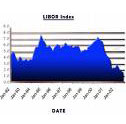Shibor lays money policy foundation
By Wang Ye (China Daily)Updated: 2007-01-16 10:23
China has taken further steps to push market-oriented interest rate reform and develop a benchmark interest rate system for the money market.
 Industry observers applauded the introduction of the Shanghai Interbank Offered Rate (Shibor), which lays the
foundation for evolution of the country's money policy to achieve macro-control
indirectly via adjusting the benchmark interest rate, rather than the current
approach of maneuvering the money supply.
Industry observers applauded the introduction of the Shanghai Interbank Offered Rate (Shibor), which lays the
foundation for evolution of the country's money policy to achieve macro-control
indirectly via adjusting the benchmark interest rate, rather than the current
approach of maneuvering the money supply.
But they noted that it will still take time for Shibor to exert its influence, and acceptance and involvement by more financial institutions is necessary to make it a real benchmark interest rate.
The scarcity of a market-oriented benchmark interest rate has been a shackle on the country's financial market.
The central bank currently uses one-year deposit and lending rates as the benchmark, but since adjustments are infrequent the rates fail to reflect market changes in a timely manner.
After a trial run of more than a month, the People's Bank of China on January 4 put forward Shibor in a move to develop a more market-sensitive benchmark for the interbank market.
There are eight Shibor rates, with maturities ranging from overnight to a year. These are fixed according to calculations from the rates quoted by 16 banks, eliminating the two highest rates and the two lowest, and then averaging the remaining 12.
Deutsche Bank, HSBC and Standard Chartered are the three foreign banks
contributing quotes to Shibor.
| 1 | 2 | 3 |  |
(For more biz stories, please visit Industry Updates)